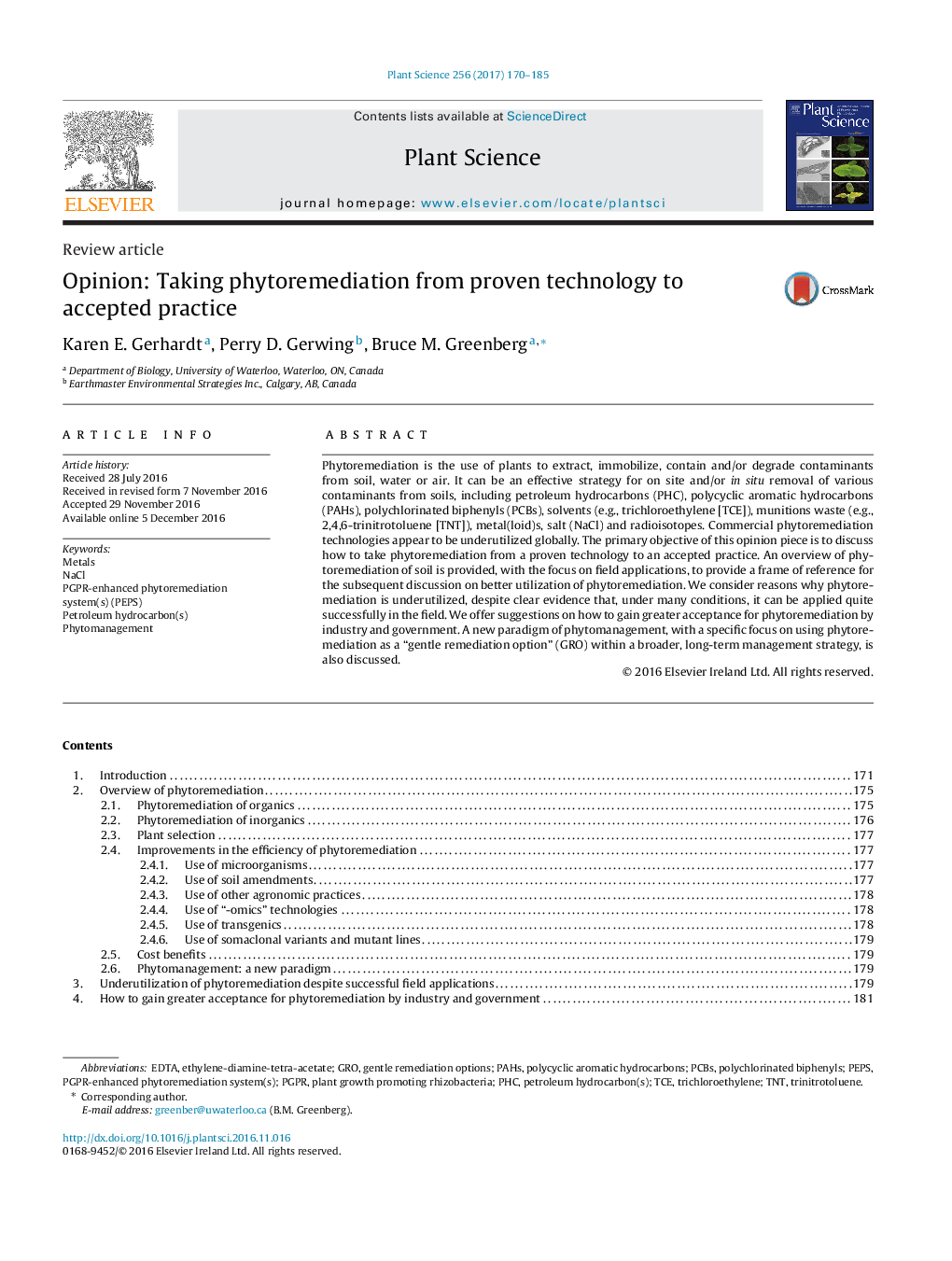| کد مقاله | کد نشریه | سال انتشار | مقاله انگلیسی | نسخه تمام متن |
|---|---|---|---|---|
| 5515817 | 1542033 | 2017 | 16 صفحه PDF | دانلود رایگان |
- Phytoremediation can effectively remediate soil impacted with PHC, salt and metals.
- There are numerous ways to increase phytoremediation efficiency, including microbes.
- Phytoremediation is underused despite its proven success and potential.
- Many strategies can be employed to foster greater implementation of phytoremediation.
- Educating the private and public sectors about phytoremediation is crucial.
Phytoremediation is the use of plants to extract, immobilize, contain and/or degrade contaminants from soil, water or air. It can be an effective strategy for on site and/or in situ removal of various contaminants from soils, including petroleum hydrocarbons (PHC), polycyclic aromatic hydrocarbons (PAHs), polychlorinated biphenyls (PCBs), solvents (e.g., trichloroethylene [TCE]), munitions waste (e.g., 2,4,6-trinitrotoluene [TNT]), metal(loid)s, salt (NaCl) and radioisotopes. Commercial phytoremediation technologies appear to be underutilized globally. The primary objective of this opinion piece is to discuss how to take phytoremediation from a proven technology to an accepted practice. An overview of phytoremediation of soil is provided, with the focus on field applications, to provide a frame of reference for the subsequent discussion on better utilization of phytoremediation. We consider reasons why phytoremediation is underutilized, despite clear evidence that, under many conditions, it can be applied quite successfully in the field. We offer suggestions on how to gain greater acceptance for phytoremediation by industry and government. A new paradigm of phytomanagement, with a specific focus on using phytoremediation as a “gentle remediation option” (GRO) within a broader, long-term management strategy, is also discussed.
Journal: Plant Science - Volume 256, March 2017, Pages 170-185
